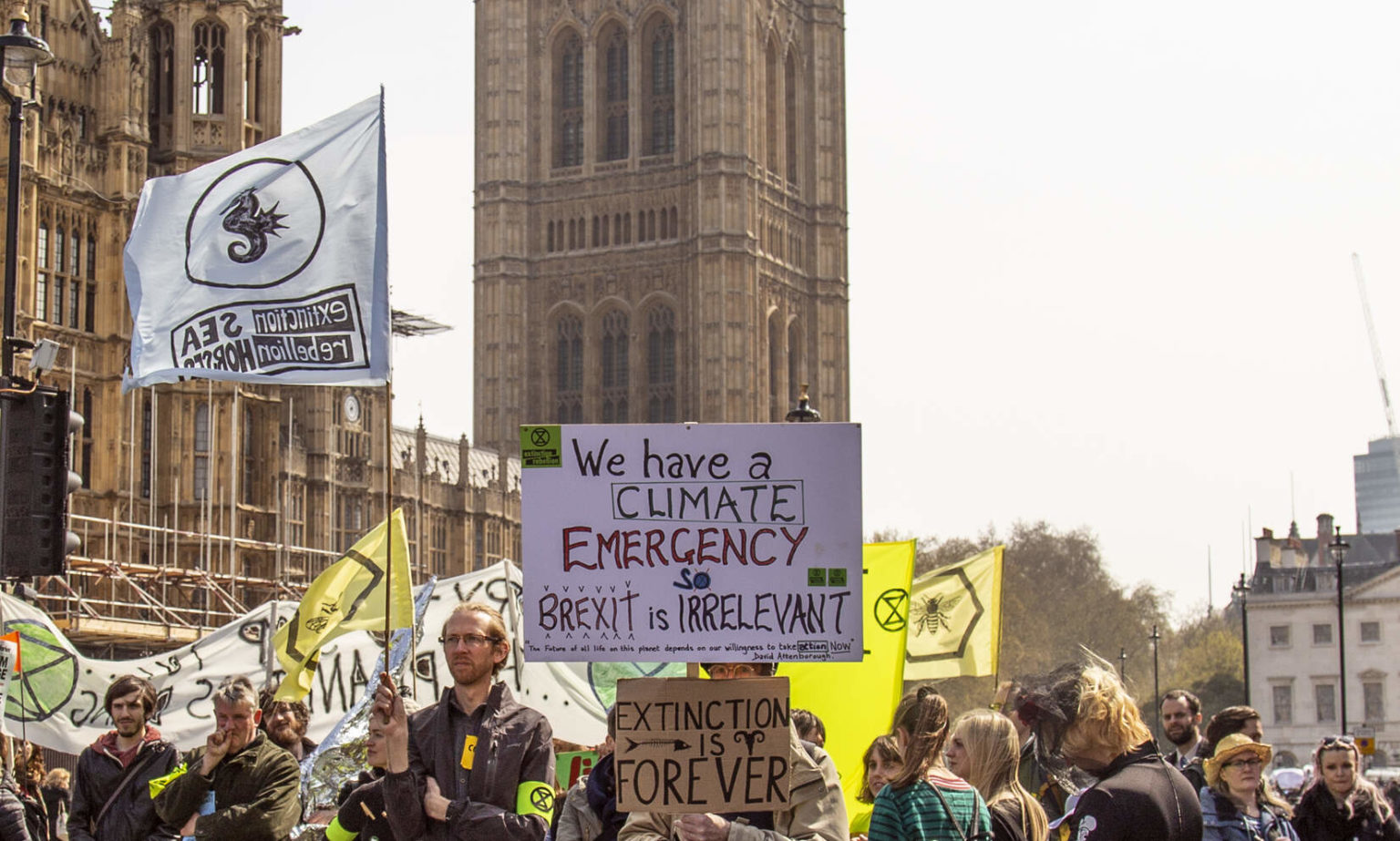More than 60 MPs are standing down in the upcoming election. While it’s always sad to bid esteemed colleagues goodbye, some MPs leaving may not be such a bad thing for the UK’s efforts to tackle the climate crisis.
From fracking supporters, to aggressive opponents of climate campaigns, here’s a quick rundown of some of those that won’t be returning to the house of fun come 2020.
Support DeSmog’s reporting on the general election – Become a patron today!
Conservatives
Having been largely anonymous for much of his tenure, Conservative MP Mark Field this year certainly… well… made a mark in this field.
Field has been Cities of London and Westminster MP since June 2001. He will probably be mainly remembered for violently removing a Greenpeace protester from a Mansion House event in June 2019. Field apologised “unreservedly” for his actions. Nonetheless, he was quickly suspended from his Foreign Office role and then sacked from the government by Boris Johnson. Now, he’s leaving parliament for good.
Making a quieter departure is Alan Duncan, the Rutland and Melton MP. Duncan hasn’t yet announced what he plans to do next, but the former Foreign Office and Trade minister is no stranger to the oil and gas industry – in 2016, he earned £90,000 as a non-executive chairman of Fujairah Refining in the United Arab Emirates, including a £50,000 severance payment.
An MP with some specialist knowledge of the climate portfolio, Amber Rudd, is also stepping down. Rudd was briefly Secretary of State for the now-disbanded Department of Energy and Climate Change from 2015 to 2016. During that short time, she worried a few when she referenced Nigel Lawson in one of her early speeches, which focused on keeping the costs of energy low. Lawson was Margaret Thatcher’s former Chancellor, and is the founder of the UK’s principal climate science denial campaign group, the Global Warming Policy Foundation. Rudd was also in charge when the Conservatives decided to end subsidies for onshore wind power and cut solar power subsidies.
Labour
A pair of broadly pro-fossil fuel Labour MPs are also stepping down.
Jim Fitzpatrick, the MP for Poplar and Limehouse, which he has served since 1997, was vice-chair of the now disbanded all party parliamentary group on Unconventional Oil and Gas. That group received around £130,000 from companies directly involved in the shale gas industry, DeSmog previously revealed.
Fitzpatrick was fond of making national security arguments for shale gas, once telling parliament that, “the Government have to address the conflict between local communities being panicked and scaremongered into opposing shale extraction applications and the need for that national industry to be developed”.
Another Labour MP stepping down that wasn’t so keen on curbing the amount of fossil fuels in the UK energy mix is pro-Brexit, former coal miner, Ronnie Campbell, the MP for Blyth Valley since 1987. He’s done a lot in that time, including opposing the government’s coal phase-out plan by proposing an early-day motion arguing that “coal can be, and should be, part of that UK low carbon energy generation mix beyond 2025”.
Want to know more about the UK‘s climate leaders and laggards, check out our Disinformation Database
Another long-standing MP notable for being a fan of leaving things is Kate Hoey, who will be exiting parliament in an orderly fashion by the December 12 deadline. MP for Vauxhall since 1989, Hoey was chair of pro-Brexit Labour Leave in the run-up to the EU referendum, and co-founded another pro-leave campaign group, Grassroots Out, alongside prominent DUP climate science denier Sammy Wilson.
Hoey has campaigned alongside Nigel Farage and was pictured campaigning with astrophysicist and climate science denier Piers Corbyn in Vauxhall in May 2017.
Former ministers
It’s not only climate laggards leaving the House of Commons. A handful of MPs that have at various times had responsibility for guiding the UK’s low carbon transition are also voluntarily jumping ship.
Former energy minister Claire Perry, MP for Devizes, is stepping down having had a slightly rocky time of it in government. Perry not only faced the Daily Mail’s fury over a meeting with Extinction Rebellion protesters (which she publicly promised to have five months previously), but she also faced allegations of bullying, which she denies.
Perry launched the Powering Past Coal Alliance at the UN climate talks in 2017 – a coalition of countries promising to rapidly phase out coal from their energy mix, and she is still in line to lead the UK’s preparations for the annual UN climate talks in 2020 in Glasgow, despite no longer holding a government or parliamentary position.
Former Climate Minister Nick Hurd, who represented the UK at the UN climate talks in Marrakech in 2016, is also stepping down, as is former Energy Minister Richard Harrington, who once turned down a meeting with BP while in his post – leaving parliament with two fewer MPs that at least had some idea what the government was doing to tackle climate change.
Image: Rachel Hardwick, Public Domain.
Subscribe to our newsletter
Stay up to date with DeSmog news and alerts







